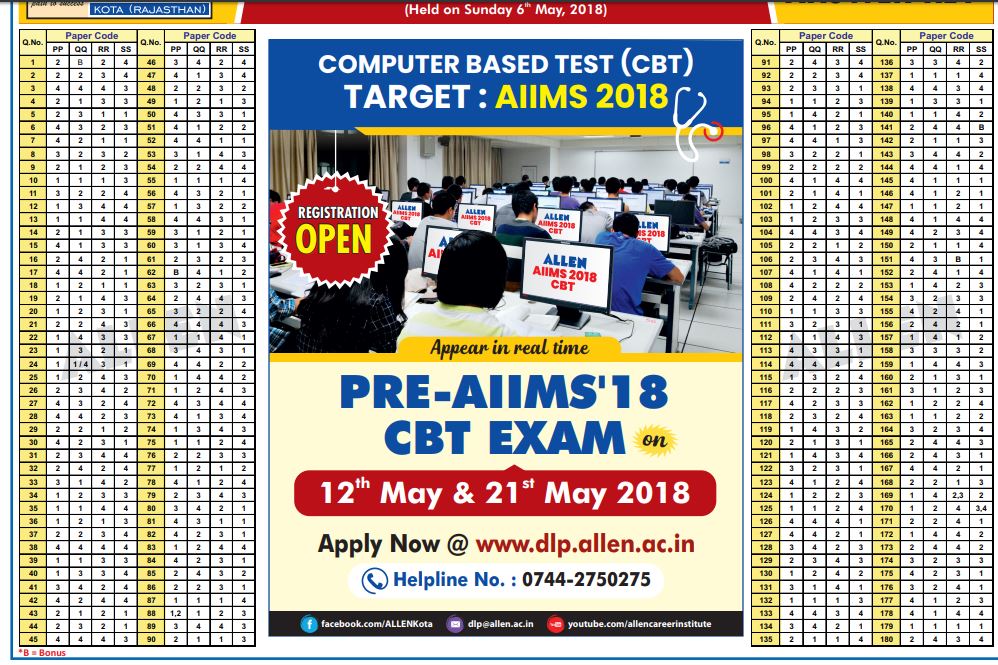 NEET 2018: The National Eligibility-cum-Entrance Test (NEET) for admission to medical and dental colleges across the country was conducted by CBSE in 136 cities as against 107 last year.
NEET 2018: The National Eligibility-cum-Entrance Test (NEET) for admission to medical and dental colleges across the country was conducted by CBSE in 136 cities as against 107 last year.
NEET 2018: The Central Board of Secondary Education has conducted the NEET examination at various centres across the country. The examination was held in 136 cities as against 107 centres last year. This year, the board set up 43 new centres to accomodate the higher number of applicants. As the examination concluded, the answer keys are likely to be released any time this month. All the candidates who had appeared for the examinations have to keep an eye on the official website, cbseneet.nic.in. The candidates can challenge the answer keys on payment of non-refundable processing fee of Rs.1000/- per answer challenged.
The students found Physics a bit tough and lengthy, however, some students complained of stringent security measures and other formalities for the poor show. Oihik Mitra, BE College Model School, said, “The paper was moderate, but I found Physics a bit tough and lengthy. I failed to complete paper on time, and expect a score of above 500.” Meanwhile, a student blamed stringent security measures and other formalities for his poor show. “Such a strict security measure is a kind of harassment before entering the examination centres. Half an hour went for different kinds of formalities,” said the NEET aspirant. Regarding the paper, the student said, “Biology was the easiest, I have attempted more than 80 questions. This year, Physics was the toughest, I couldn’t attempt all the questions.”
NEET 2018: Check unofficial answer keys here

NEET 2018: Paper analysis
Physics
In Physics, about 10 questions required strong analytical thinking as some of them involved a combination of concepts. The paper covered the entire syllabus comprehensively. There were only a few straightforward questions. The majority were of moderate level difficulty. Unlike previous year’s NEET paper, which comprised of questions requiring quick calculation skills and time-consuming problems, this one is more balanced and can be completed within the prescribed time.
Chemistry
Coordination chemistry and chemical bonding got a fair amount of representation than expected. Apart from that, there is a balanced representation of 11th and 12th concepts. The questions were of a bit higher difficulty compared to previous years. Except for about five to eight questions, most questions were of moderate difficulty. Electrochemistry and solutions had less than expected representation.
Biology
Biology had more questions related to human physiology and reproduction, genetics Molecular biology, cell biology, ecology. Rest of the chapters have had a balanced representation. Deviating from the past, questions based on facts and the memorisation of events were more. The difficulty level is moderate and focus on application of knowledge is higher, which is a good trend.
The medical entrance test shall consist of one paper in all languages containing 180 objective type questions (four options with a single correct answer) from physics, chemistry and biology (botany and zoology). The duration of test would be three hours. The Central Board of Secondary Education (CBSE) conducts the examination every year for aspirants seeking admission to undergraduate MBBS and BDS courses all over India, lakhs of candidates apply for admission in medical colleges